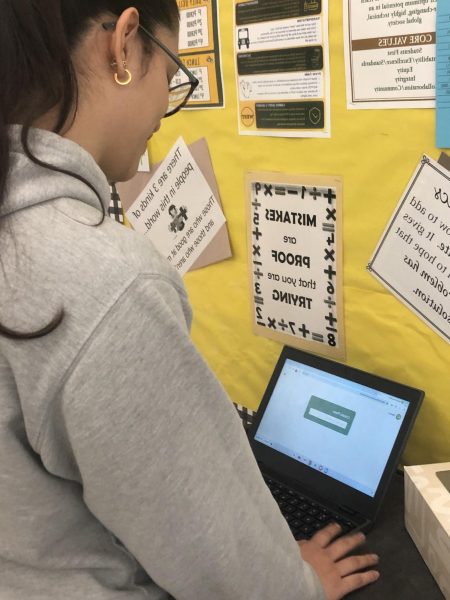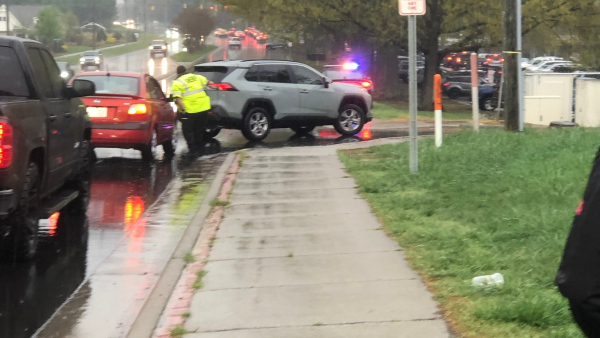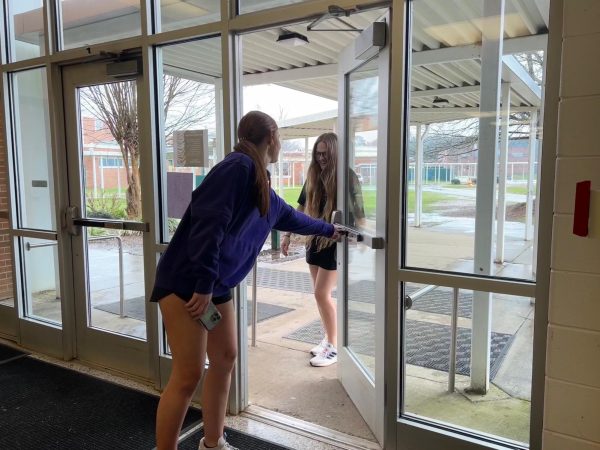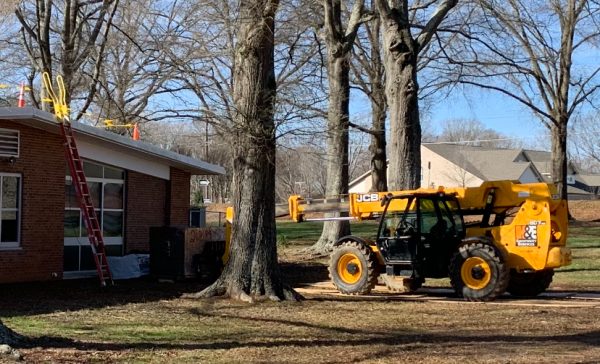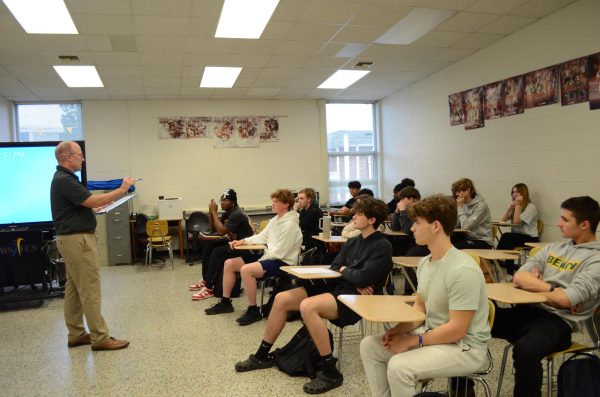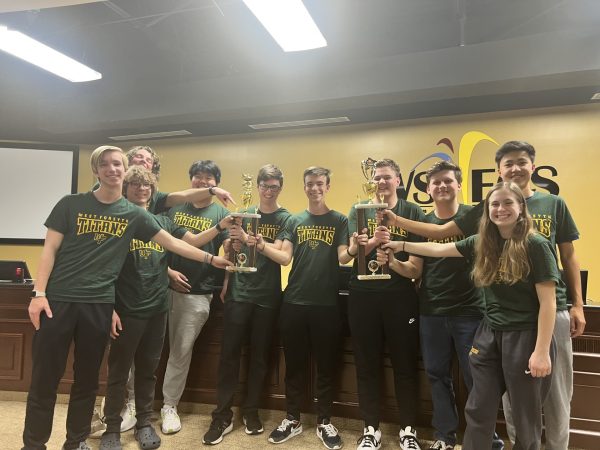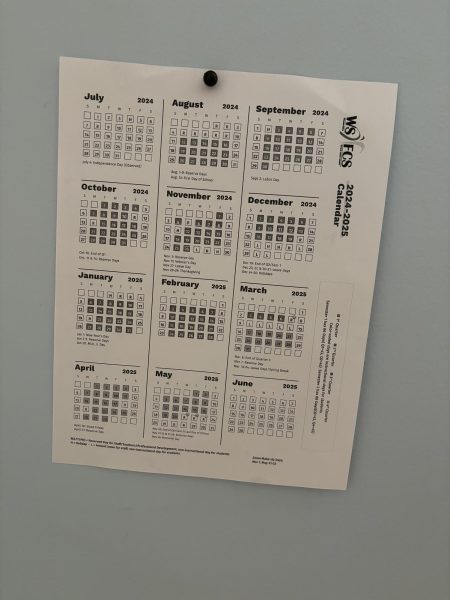Back-to-Zoom: Students and teachers embark upon a virtual school journey
September 20, 2020
It’s the first day of school. But wait– instead of students waking up early to prepare their best outfits, packing their shiny, new supplies and making their way to school in the morning air, students are preparing by putting on their coziest sweatpants.
Bedrooms are the new classrooms minus the white boards and fluorescent lights. Kitchens are the new cafeterias, but these rooms aren’t filled with the chatter of students and the smell of fresh cafeteria pizza. As WSFCS has decided to complete the first nine weeks of school online due to the COVID-19 pandemic, lives are being flipped upside down.
After facing a great number of students who were not engaged in online learning last semester, WSFCS hopes to get all students involved this fall. The county has created what they coined a CARES team to ensure all students have the neccesary resources to be successful. In an interview with WFMY News 2, Michael Pesce, director of social work for WSFCS, spoke on how the county is ensuring students are motivated.
“Teams will be able to not only work it from the school end but also have people go into homes and learning centers to make sure we’re engaging students,” Pesce said.
As opposed to last year, where teachers used a variety of platforms to post students assignments, all North Carolina schools have started using Canvas. Teachers post their assignments and class details on Canvas, and students “go to class” by attending Zoom meetings Monday through Thursday, with Fridays being used as a day for tutoring and catching up on assignments. Although the state spent months developing Canvas, failures have already occurred within the first two weeks of school, cancelling some classes last week. Teachers have faced difficulties navigating the online world, and teaching rigorous courses, like APs, come with a lot of pressure. Especially with AP exams happening in May, these teachers will still be judged off of their students’ performance, despite the fact that they have not had a chance to connect with their classes in person.
“This has been a stressful transition for myself and many of my fellow teachers… Technology has been a daily issue so far and the district’s decision to implement Canvas this year has proved challenging, as many teachers were finally comfortable with Powerschool and/or Google Classroom. West has a faculty that is full of dedicated professionals that are working hard to make eLearning work. We will all get through this obstacle together,” social studies teacher Eric Dunham said.
Many teachers have found difficulty in trying to forge personal relationships with students through a computer screen.
“One of the biggest challenges in teaching virtually is connecting with students and helping students connect with each other. When I can walk by and chat with them during class while they are working in groups, it’s much easier to get to know them, and for them to get to know and trust me… I am using the breakout room feature of Zoom to give them an opportunity to socialize a bit so they can get to know each other and ask questions of each other and me in a smaller environment. For all of my classes, particularly AP Chemistry, the labs and hands-on activities can be difficult to replicate in the virtual world…I also like the little glimpses of my students’ lives that I get when I see them on Zoom, like seeing a pet (always happy to see a pet!) and people in their families,” chemistry teacher Anne Atkins said.
Students have found some positives and negatives as they adapt to eLearning. While some enjoy the ease of attending class from the comfort of their homes, others find online classes hard to maintain.
“Online learning is definitely different in many ways than being in school. Perks are that once you finish your work then you have free time. Cons are that not everyone knows/has the means of being able to do online learning. Teachers are having to learn the stuff with us, making it take longer to get work done,” junior Spencer Browning said.
Many seniors are upset to not experience their final year of high school in a normal manner with Friday night football games, Prom, and other senior traditions they have looked forward to.
“Doing senior year has been different online obviously, but I have gotten pretty accustomed to it and like it. It’s sad not being able to be with my friends in class or at school and being able to enjoy many senior year traditions, but I hope to be able to make this year as best as possible,” senior Gaby Ferrer said.
Virtual school is an adjustment for all. Teachers, students, and schools are working proactively to fight the technology barriers that are inhibiting success. Although there have been some obvious challenges, the county is hopeful that people will grow accustomed to this process as technology continues to improve and teachers grow acclimated to 2020’s new classroom.


